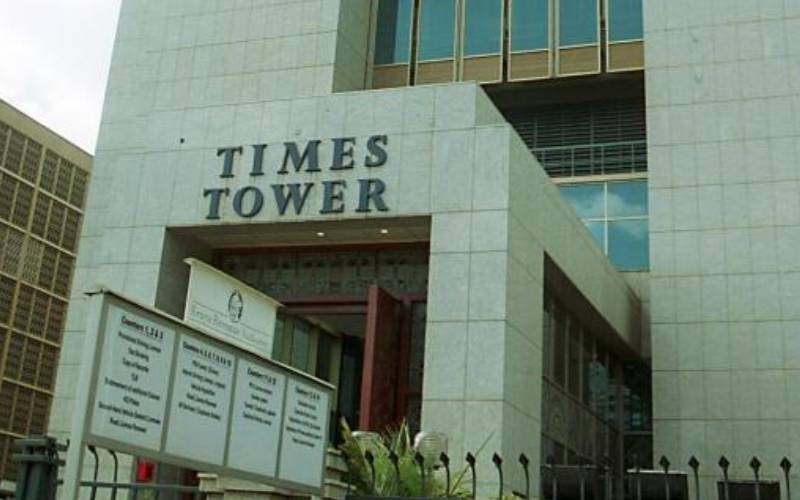BY Emmanuel Were
The strong rally of shares at the Nairobi Securities Exchange has reignited debate as to whether the government has missed out on billions of shilling in tax revenue by not introducing capital gains tax on shares traded at the bourse.
The stock market capitalisation – the value of all shares - hit Sh2 trillion in January, leaving some investors handsomely wealthy as some shares climbed to an all-time high.
Although, the shares have started to fall from the highs recorded in January, the commencement of reporting season should excite investors to buy more shares.
This might lead to another rally in the share prices. And for the Government, it might mean ruining an opportunity to have introduced the capital gains tax on shares, earning it money to plug its budget deficit.
Free movement
Capital gains tax is usually levied on profits made from selling shares at the NSE or earnings from property sale. Treasury Cabinet Secretary Henry Rotich will no doubt regret why he quickly shelved plans to reintroduce the tax in his 2013/2014 budget which sought to tax gains from sell of property and shares.
His plans had sparked off market jitters forcing him to beat an embarrassing retreat and instead suggested wider consultations.
The climb-down was informed by the Treasury’s bid to reverse major losses suffered by the country’s emerging stock market and the currency market that has been under pressure since the Cabinet Secretary proposed to reintroduce the tax in his June Budget speech.
“Consultations between the National Treasury and KRA are ongoing but we have nothing tangible as yet. We have to decide on which sectors to be targeted and will have something indicative by March (this year),” Rotich was quoted by the media as saying.
“I will probably have to clarify on the tax in my budget statement for the 2014/15 financial year,” Rotich said.
There were strong hints that a capital gains tax would be introduced at the NSE, but the certainty remained the tax would be introduced in the property segment, which has shown very strong growth.
Kenya, which seeks to position itself as an international finance centre is basing its strength to a favourable tax regime, as there is no capital gains tax, a position that is credited to the Nairobi bourse being the darling of foreign investors.
So how much would the government have made had it been eager to fill its coffers? Investors got richer in 2013 adding over Sh630 billion to their collective net worth in the course of that year. To give some perspective to this figure, the Kenya Revenue Authority only collected Sh800 billion in taxes in 2013. The Sh630 billion is the difference of the value of all the shares at the beginning of the 2013 and at the end of 2014. Most of the share price rally happened in the second half of the year. So even assuming a moderate split of half of the Sh630 billion in the second half, one would get Sh315 billion.
Now if the government took only 10 per cent of this, it would amount to Sh31.5 billion. This is thrice the amount the government plans to collect through VAT Bill that seeks to harmonise collection of VAT.
Stay informed. Subscribe to our newsletter
Interest rates
But players in the stock market say collection of the capital gains tax is not that simple. “Accounting wise, the capital gains tax is a very rigorous tax to implement,” explained Eric Musau, an analyst at Standard Investment Bank. “If you look at the stock market, by how much the index had gone up over a ten year period, it would be a zero sum game.”
Musau was referring to the vagaries of the stock market. In the good years —2013 and 2012 —investors made money. But there are bad years like in 2011 when the performance of the market was subdued because of interest rates spike. Investors left the stock market in hordes. It means the government would not have collected very little in the form of capital gains tax.
There are also other aspects to consider before the tax is implemented.
“Supposing somebody buys shares at Sh5 and the following day he sales at Sh5.50, how would the taxman calculate as capital gains tax?” posed Job Kihumba, an executive director at Standard Investment Bank.
“Sometimes, earnings in the capital markets are so tiny that you cannot track. In the case of real estate, which takes a long time before any transaction is done, it would be easier to track,” he explained.
“People buy and sell shares in a matter of days. They are taking profits of three per cent in some of their trades. Calculations for the capital gains tax are complex because you have to factor period in which you will tax the income from sale of shares,” reckoned Kihumba.
Between 1975 and 1985, the government had a capital gains tax in place and there were few trades recorded in the market. Though, now the story is different, with a lot of interest coming from foreign investors buying into Kenya’s growth story, as they look for better investment returns.
Many economists in the past have argued that the capital gains tax would be more beneficial to long-term investors given that the tax encourages locking in their money in the stock market, a scenario that puts off market speculators who strive on price swings. Over the years, stock markets have shown to perform much better than other asset classes like land and property because of this class of investments is highly liquidity.
The Weekend Business was unable to get a comment from Mr Rotich on the capital gains tax. Mr Paul Muthaura, the acting CEO of the Capital Markets Authority also declined to comment, referring us back to the Treasury.
 The Standard Group Plc is a
multi-media organization with investments in media platforms spanning newspaper
print operations, television, radio broadcasting, digital and online services. The
Standard Group is recognized as a leading multi-media house in Kenya with a key
influence in matters of national and international interest.
The Standard Group Plc is a
multi-media organization with investments in media platforms spanning newspaper
print operations, television, radio broadcasting, digital and online services. The
Standard Group is recognized as a leading multi-media house in Kenya with a key
influence in matters of national and international interest.
 The Standard Group Plc is a
multi-media organization with investments in media platforms spanning newspaper
print operations, television, radio broadcasting, digital and online services. The
Standard Group is recognized as a leading multi-media house in Kenya with a key
influence in matters of national and international interest.
The Standard Group Plc is a
multi-media organization with investments in media platforms spanning newspaper
print operations, television, radio broadcasting, digital and online services. The
Standard Group is recognized as a leading multi-media house in Kenya with a key
influence in matters of national and international interest.







